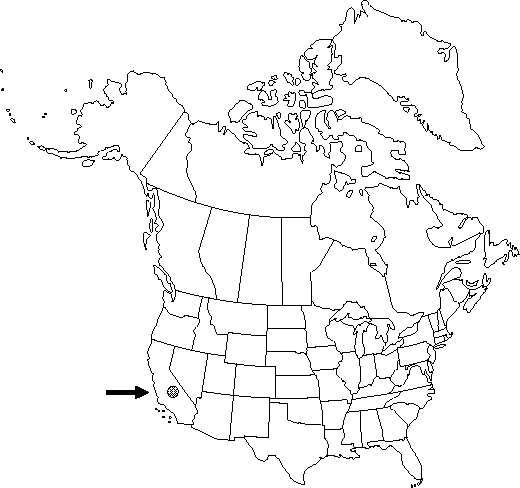Delphinium inopinum
Brittonia 8: 11. 1954.
Stems 70-110(-150) cm; base reddish or not, glabrous, often glaucous. Leaves mostly on proximal 1/3 of stem, on proximal 1/5 at anthesis; basal leaves 0-4 at anthesis; cauline leaves 6-12 at anthesis; petiole 1-18 cm. Leaf blade ± pentagonal, 1-5 × 1.5-7 cm, glabrous; ultimate lobes 3-9, width 5-28 mm (basal), 3-18 mm (cauline). Inflorescences 20-35(-51)-flowered, usually dense; pedicel 0.3-1.5(-2.5) cm, glabrous; bracteoles 2-4 mm from flowers, green, linear, 1-2(-4) mm, nearly glabrous. Flowers: sepals white to light blue, glabrous, lateral sepals spreading to forward pointing, 8-12 × 3-5 mm, spurs straight to gently upcurved, ascending 30-60° above horizontal, 9-12 mm; lower petal blades slightly elevated, ± exposing stamens, 3-5 mm, clefts 1-2 mm; hairs centered, densest near base of cleft, white. Fruits 12-20 mm, 2.6-4 times longer than wide, glabrous. Seeds wing-margined; seed coat cells surfaces smooth.
Phenology: Flowering summer.
Habitat: Rock outcrops in open coniferous woods
Elevation: 2200-2800 m
Discussion
Delphinium inopinum is apparently endemic to a white metamorphic rock substrate in the Piute Mountains and southern Sierra Nevada. It is not known to hybridize with any other species, although D. patens subsp. montanum has been collected (when both were flowering) within 1 km of D. inopinum and probably occurs much closer. Delphinium inopinum is often confused with D. parishii subsp. pallidum and superficially resembles some white-flowered individuals of D. hansenii, as well as D. gypsophilum and D. hesperium subsp. pallescens. The massive roots with prominent buds readily distinguish D. inopinum from all of these. In addition, the pubescence found on D. hansenii will separate it from the glabrous D. inopinum. Leaves are rarely seen at anthesis near the base of the stem in D. hesperium subsp. pallescens; they are present in D. inopinum.
Selected References
None.
